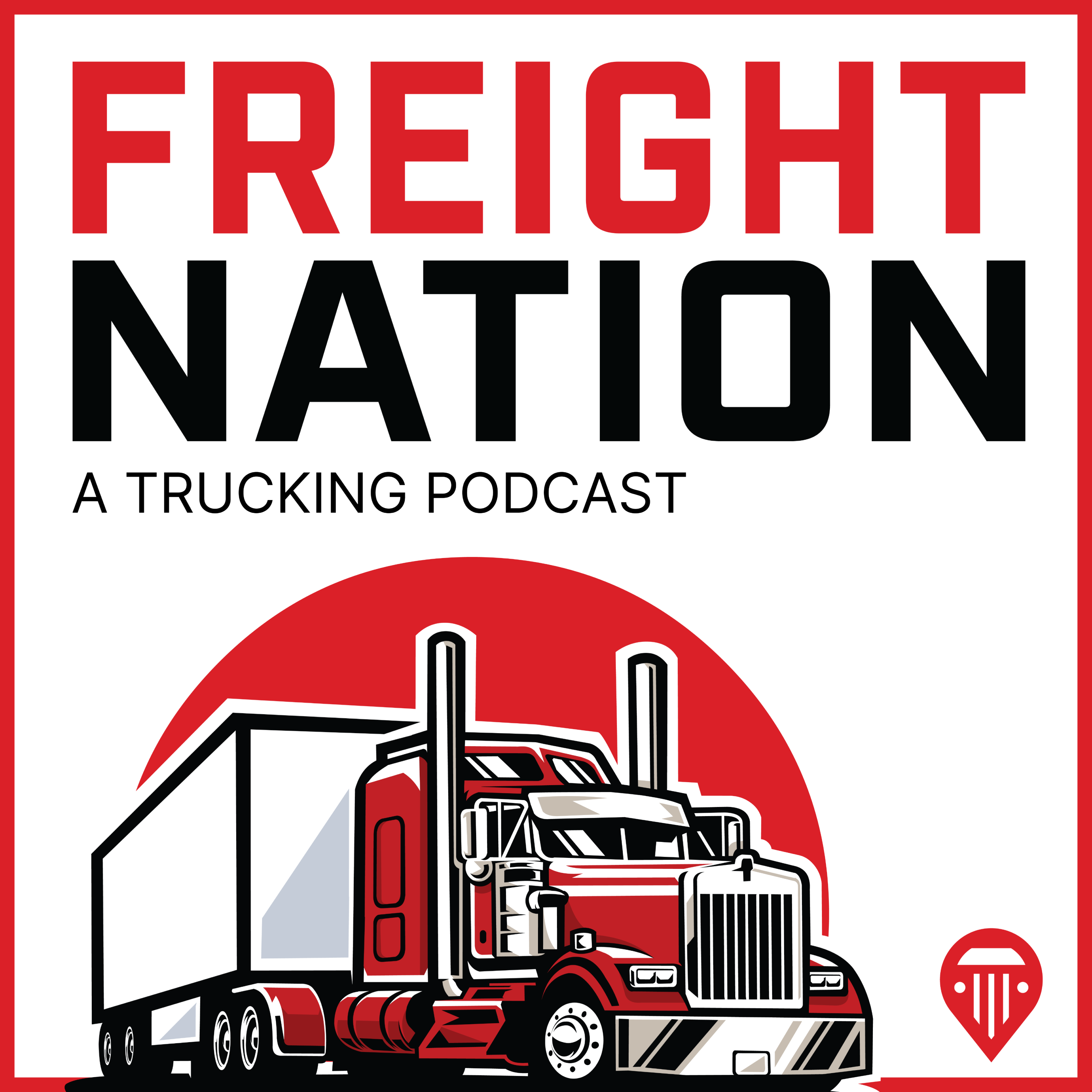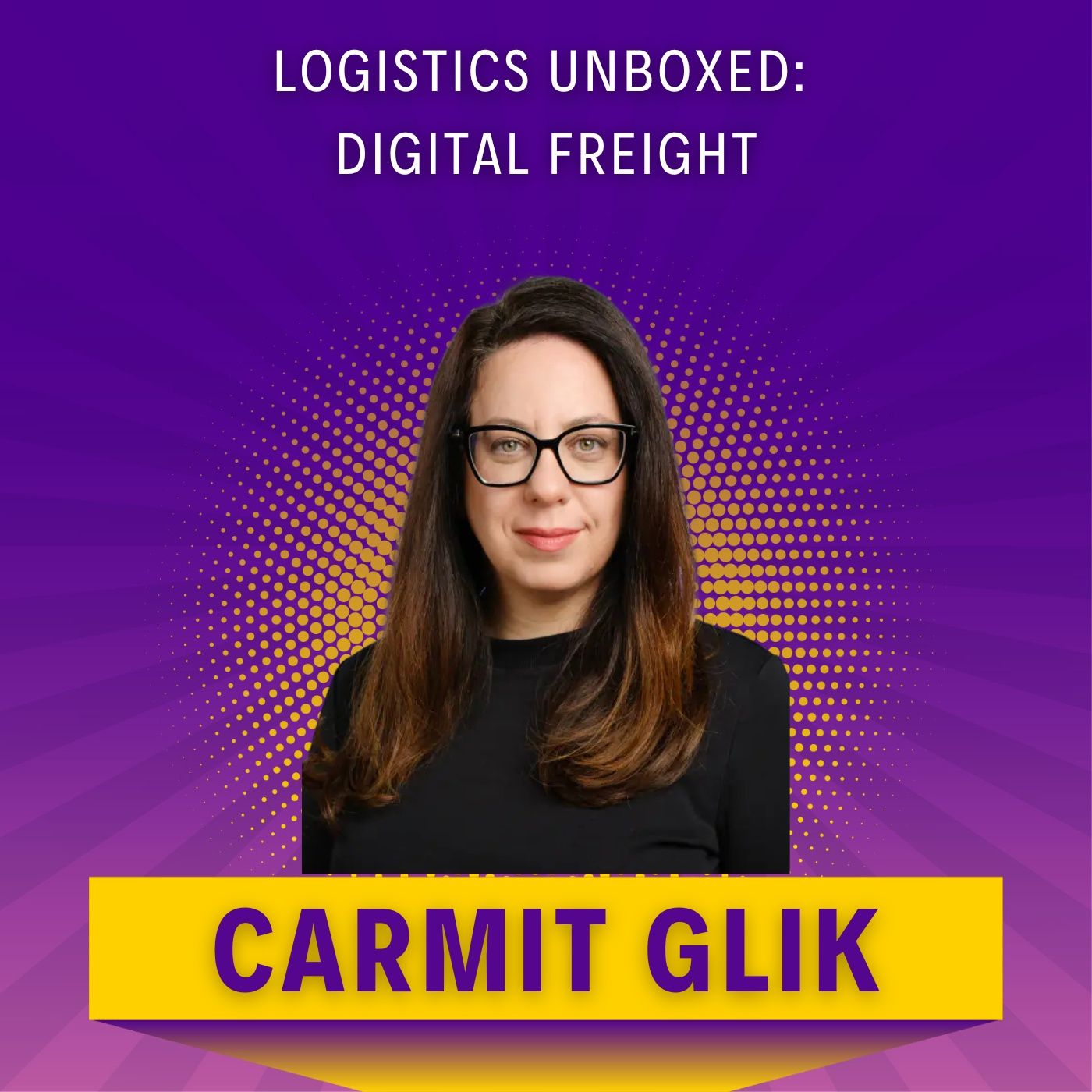
Logistics at a Crossroads
Where freight meets real life.
Hosted by Gia — logistics veteran, cancer survivor, and truth-teller — “Logistics at a Crossroads” explores the industry, identity, and the grit it takes to keep showing up. Freight. Feelings. No filter.
Logistics at a Crossroads
Episode 30 – Resilience in the Face of Change
In this episode of Holding the Line: A Logistics at a Crossroads Podcast, Gia explores the impact of today’s trade slowdowns, shifting shipping cycles, and evolving technology on the logistics industry.
From empty container yards at major ports to the ripple effects reaching small businesses and independent truckers, this moment challenges us all to rethink how we work—and how we adapt.
You’ll hear insights on:
✅ The data behind declining throughput and rising dwell times
✅ Real examples of innovation, like AI-driven scheduling and predictive analytics
✅ The human stories of planners, dispatchers, and drivers navigating uncertainty
✅ Practical ways you can prepare your operation for the rebound
If you’re in the logistics world, this conversation is for you. Let’s explore how resilience is built—not just in strategy rooms, but in everyday decisions to keep freight moving.
🎧 Tune in to discover why the future of logistics will be smarter, more efficient, and—above all—resilient.
🎧 New episodes every week.
Follow Logistics at a Crossroads on your favorite podcast platform.
📬 Want to connect?
Find me on LinkedIn: linkedin.com/in/reginahunter
Visit the blog: giakat.blogspot.com
Gia (calm and steady):
"Hey everyone, and welcome back to Holding the Line: A Logistics at a Crossroads Podcast.
I’m your host, Gia, and today we’re diving into Volume 30 of this series, where we focus on the theme of resilience in the Logistics & Supply Chain industry , especially in light of the disruptions we’re seeing right now. Between tariffs, trade slowdowns, and the seasonal shifts that impact global shipping, there’s a lot happening all at once.
And while it can feel overwhelming to watch all the headlines roll in, I want to spend some time exploring not just the challenges, but also the ways this moment is an opportunity to grow and evolve together."
The Challenge We’re Facing: A Snapshot of the Current Landscape
Gia (thoughtful):
"As we move through this unpredictable period, many are feeling the effects of a slowdown—both in global trade and at key ports like Los Angeles, Long Beach, New Jersey and Savannah.
The Wall Street Journal recently published an article that really brought this to life, with photos of empty rows of containers and cranes standing still. And if you look at the numbers, it paints an even clearer picture:
The Port of Los Angeles has seen container throughput fall about 6.5 to 10% compared to this time last year. At Long Beach, it’s down closer to 8.5 to 11%. Idle container dwell times have stretched to an average of eight and a half days, almost double what we saw back in 2023 running 3.5-4.5.
The effects are visible, and we’re already seeing the impact on the lives of workers— I mean the boots on the ground- not the boardrooms. Dockhands, truckers, maintenance and the planners. Thos who truly make our supply chain industry tick.
But here’s something that helps me keep perspective: Shipping has always been an industry shaped by cycle booms and contractions. After the 2001 downturn, global trade rebounded faster than anyone predicted. The 2015 slowdown led to waves of consolidation, but it also brought innovative partnerships between ports and carriers. Every disruption has been followed by transformation—and this time will be no different.
This isn’t the first time we’ve faced adversity. Whether it was the 2008 financial crisis or the challenges of the last few years, we’ve adapted and innovated time and again. And we’ll do it again now."
The Bigger Picture: Turning Disruptions Into Opportunities
Gia (steady, hopeful):
"It’s easy to get bogged down by the headlines and focus on the immediate impacts—delayed shipments, reduced volumes, all the uncertainty.
But when you take a step back, you realize that this disruption is driving innovation across our industry.
Companies are adopting new technologies, diversifying shipping routes, and rethinking their entire supply chain strategies. Automation, machine learning, and predictive analytics aren’t just buzzwords, they’re the tools we need to make our systems more resilient and more efficient.
According to recent surveys, about 70% of shippers are ramping up investments in automation and predictive analytics to stay ahead of these challenges. Early pilots of AI routing tools have already helped some carriers cut delivery delays by up to 25%.
One example I find inspiring is a pilot project at the Port of Savannah, where AI-driven predictive scheduling has cut truck turn times by nearly 20%. That’s not just a nice statistic—it means more loads delivered, less wasted time, and lower emissions. Proof that smart investments can drive real-world gains even in a downturn.
And it’s not just happening here. European ports are grappling with labor strikes and equipment shortages, while in Asia, carriers are deploying smaller vessels to stay nimble as demand fluctuates. These global strategies are shaping how supply chains reconfigure in real time."
The Ripple Effect: Beyond the Ports
Gia (empathetic):
"But it’s not only about containers on ships and cranes on the docks.
The ripple effects of these disruptions extend to local economies and small businesses. Restaurants, independent shops, and communities that rely on port activity are feeling the sting as shipping slows down.
Since early spring, port labor hours on the West Coast have dropped about 12%, and independent truckers are seeing contract volumes down from 10 to 15%. That means fewer paychecks, fewer deliveries, and a lot more uncertainty for the families depending on this work.
And that’s something we really must recognize, it’s not just about the trade data. It’s about the people who keep this industry moving, day after day."
The Faces of Resilience
Gia (warm, reflective):
"I’ve spoken with planners who are working double shifts to rebook containers, and dispatchers who are finding creative ways to keep freight moving, even as volumes dry up.
I recently heard from a trucker named Alana currently pulls OOG from Jacksonville, FL to North Carolina, and then grabs containerized freight from Atlanta to Chicago.. She told me she’s using this slowdown to retool her business—investing in fleet maintenance and training her team so they’re ready when the rebound comes.
These stories remind me that resilience isn’t an abstract idea. It’s the daily decision. The determination to adapt. The belief that we’ll make it through together."
Looking Ahead: What’s Next for Logistics?
Gia (steady, encouraging):
"As we look ahead, the question becomes: How do we rise above these challenges?
The answer lies in our willingness to innovate and adapt.
We’ve been through worse, and we will rise again, just as we have before. This is a chance to rethink our systems, embrace new technologies, and build a logistics landscape that’s not only resilient, but forward-thinking.
If you’re listening right now and you’re in this business, I’d encourage you to think about one area of your operation where you can start preparing for the rebound. Maybe it’s cross-training staff. Maybe it’s exploring digital tools you’ve been curious about. Maybe it’s reevaluating carrier relationships.
Small steps now can set you up to emerge stronger when volumes pick up again."
Conclusion
Gia (warm, confident):
"The future of logistics is going to be smarter, more efficient, and—above all—resilient. And that’s a future I’m excited to be part of.
If today’s episode spoke to you, I’d love to hear your story. Reach out on LinkedIn, or share how you and your team are finding ways to adapt. What innovations are you seeing? How are you weathering the slowdown?
And remember—resilience doesn’t happen in isolation. Share this episode with a colleague or a friend who needs encouragement, and let’s keep holding the line together."
🎶 [Outro music – Hustle Harder fades in]
Gia:
"Thank you for tuning in to this episode of Holding the Line: A Logistics at a Crossroads Podcast.
Until next time, keep holding the line. Keep believing in your capacity to adapt. And know that I’ll be right here, navigating the crossroads with you."










